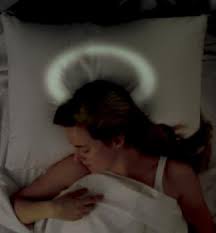
A recent study presented at the annual meeting of the Society for Neuroscience in Chicago, published in the December 2009 issue of Behavioral Brain Research, examined the degree to which the level of light in a room during a sleeping session may directly affect levels of depression. It has been a question that many scientists have pondered over the years, due to the fact that many individuals who sleep with some form of light, whether from a television set, a street light shining in through the window, or even an LED display from digital clock, have suffered from some form of clinical depression, while individuals who sleep in a completely controlled environment where light is completely eliminated seem to exhibit or report fewer signs of depression.
It is true that many individuals claim that they cannot fall asleep without the aid of a television. This begs the question: does the flickering light from the television affect sleep patterns at a subconscious level? A room that has some type of light source might not necessarily keep one awake at night but it might well lead to symptoms of depression as a result of interrupted sleep.
The study was conducted at Ohio State University and involved 24 male laboratory mice. Half were subjected to light for 16 hours a day, then darkness for 8, while the others lived in a lighted area for a full 24 hours a day. Meanwhile, half of each group of mice were allowed access to opaque tubes in their cages where they could escape from light at any time they chose, while the other half of the tubes were completely clear and offered no shelter from the light at any time. Over a period of three weeks researchers conducted a series of tests to measure depression and anxiety levels in the rodents. What they discovered was that in virtually every test in which the mice were forced to live and sleep in constant light, depressive symptoms were exhibited as compared with those mice that experienced ‘normal’ light and dark cycles.
Laura Fronken, lead author of the study and a graduate student in psychology at Ohio State University, stated that, “the ability to escape the light seemed to quell the depressive effects, but constant light with no chance of escape increased depressive symptoms.”
The overall conclusion of the study is that the use of artificial light during the night may indeed promote harmful effects on human health. Fronken noted that that “this is important for people who work night shifts, and for children and others who watch TV late into the night disrupting their usual light-dark cycle.” Researchers also suggest that their study could potentially impact healthcare itself, considering that most intensive care units are extremely well lit 24 hours a day, which might well delay progress in their patients as well as contributing to psychological stress and far less than optimal sleep required for healing.

No comments:
Post a Comment